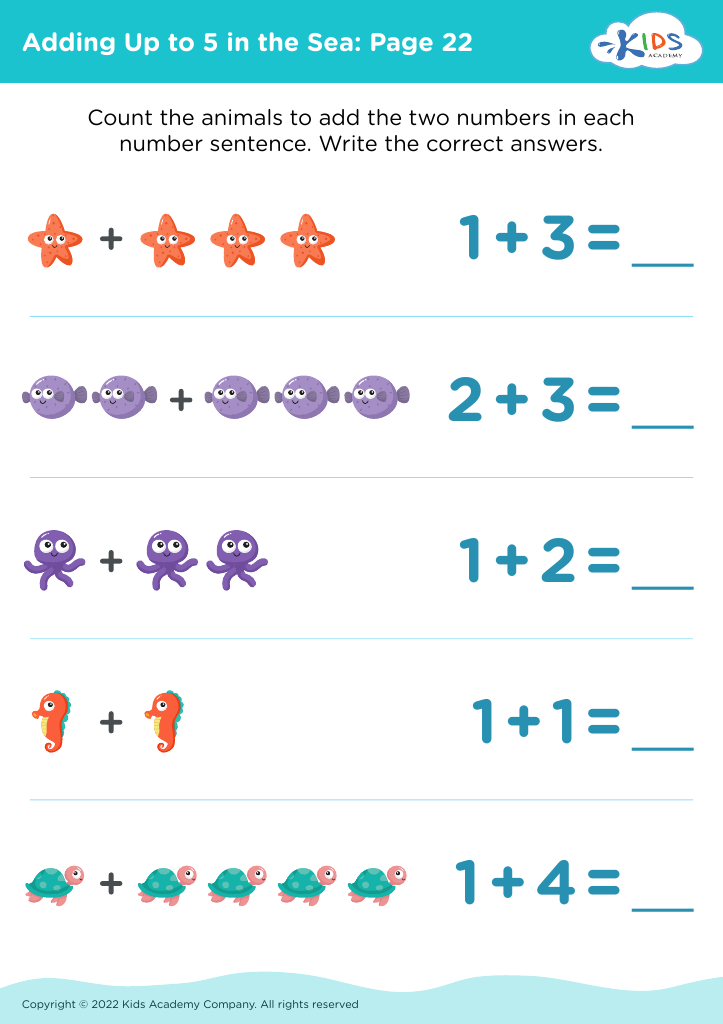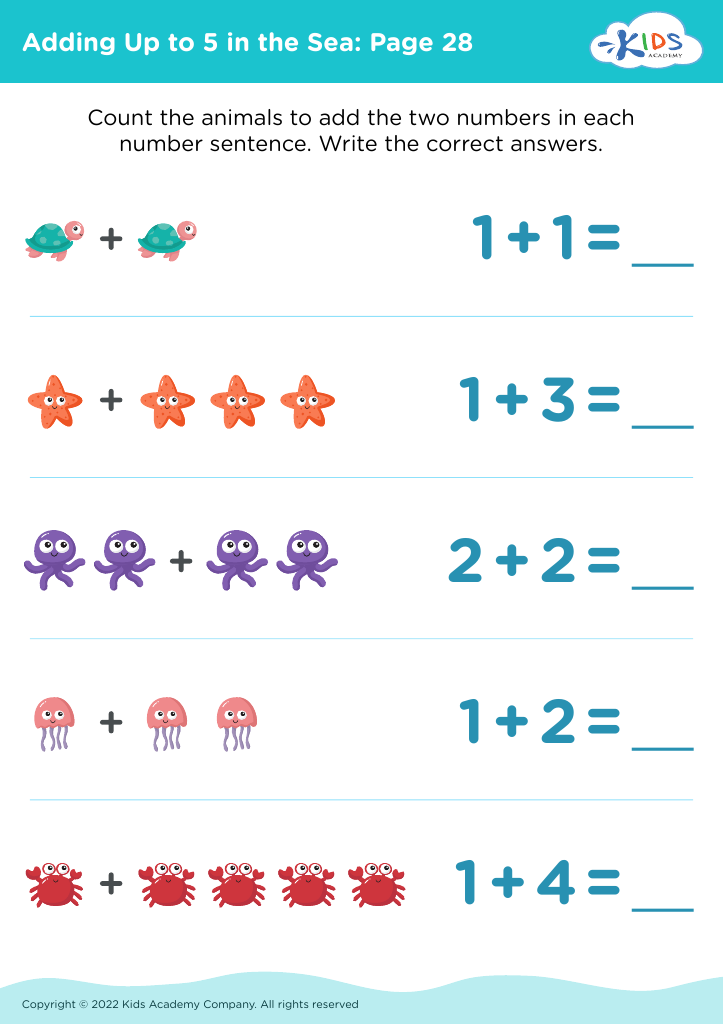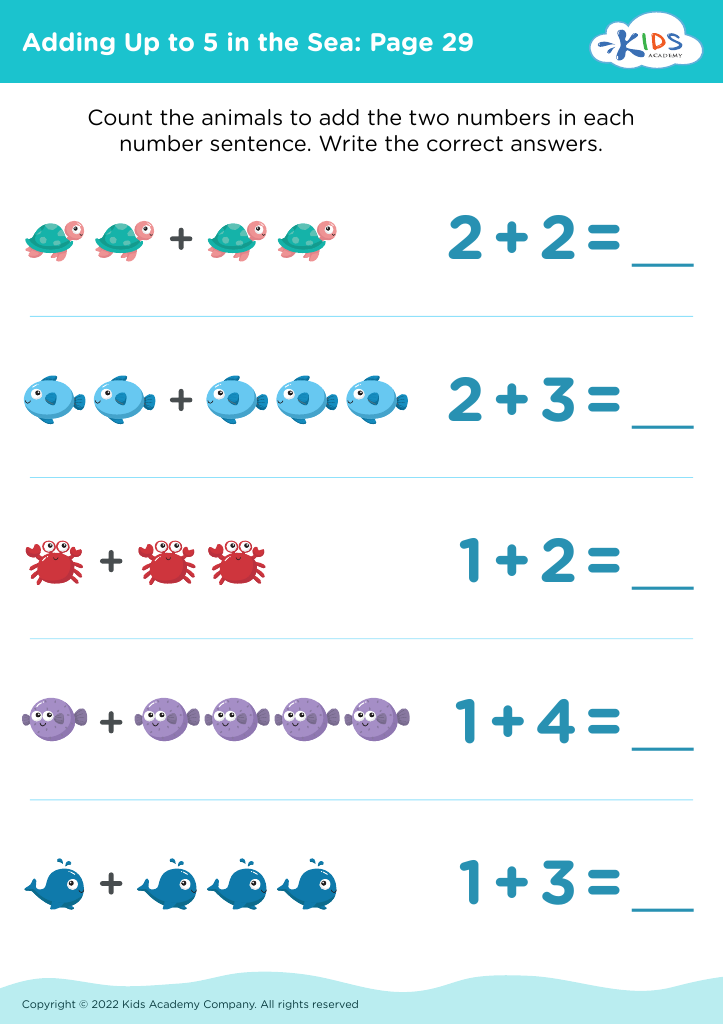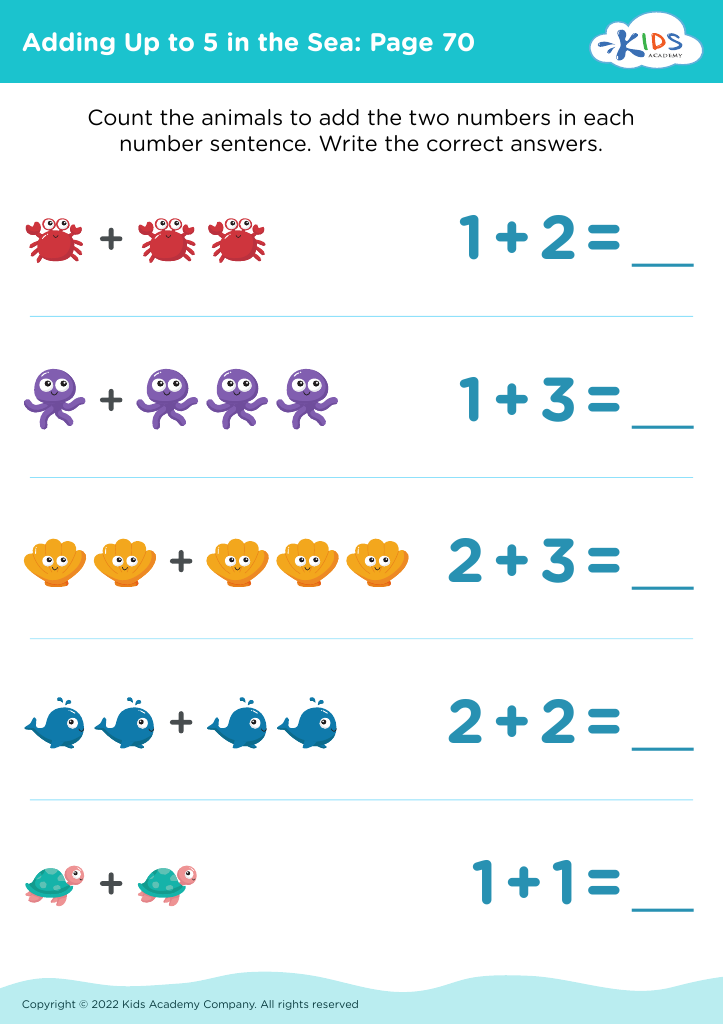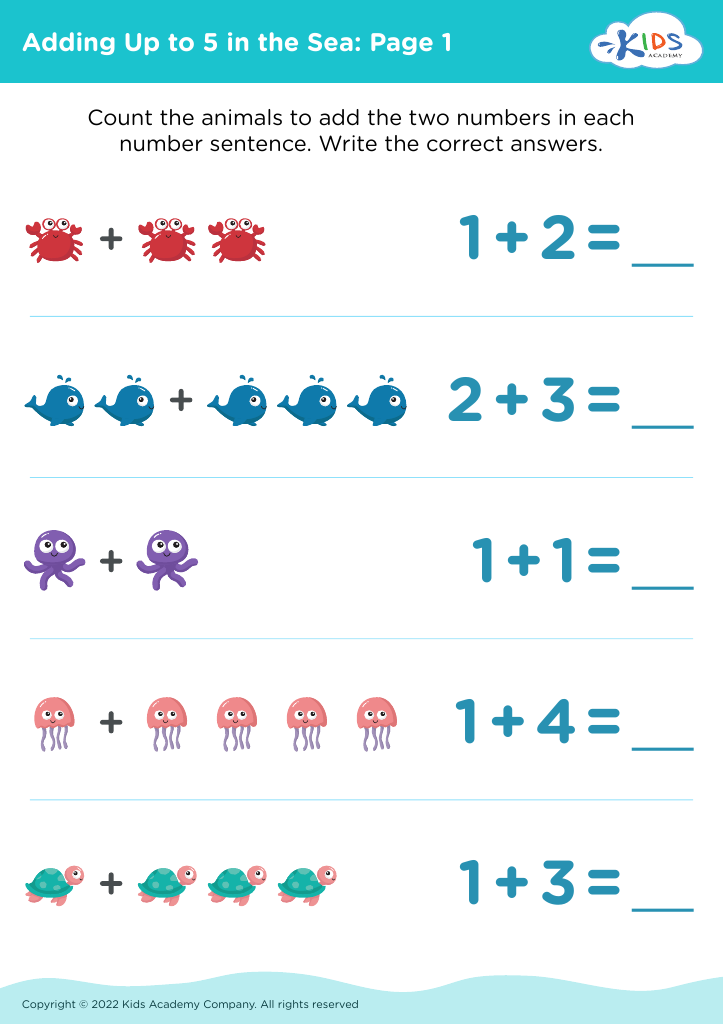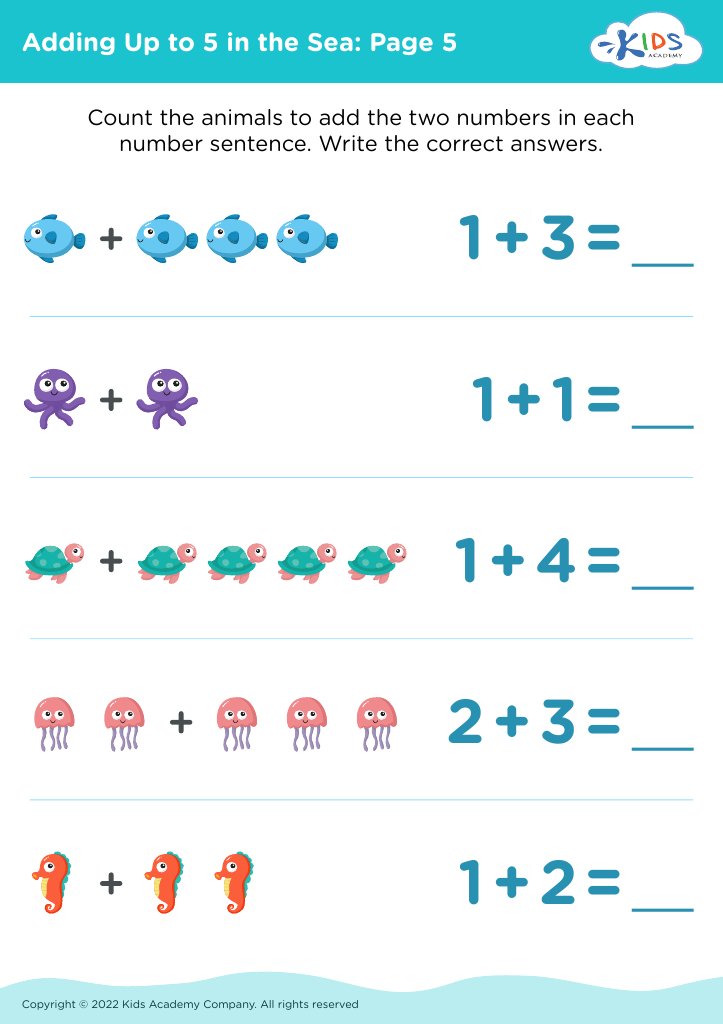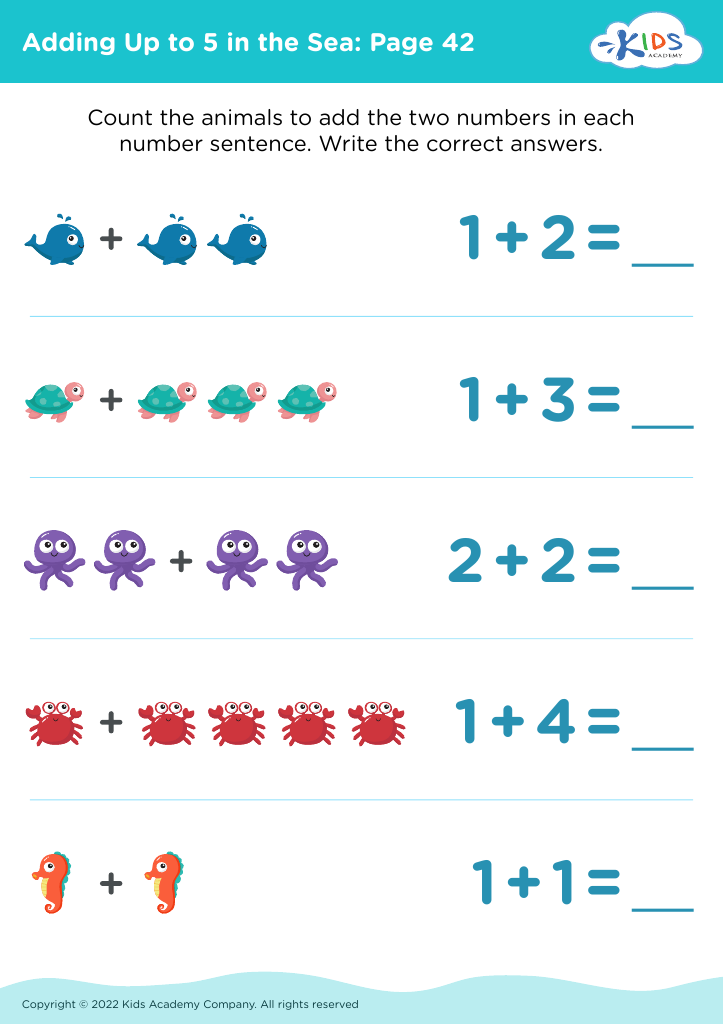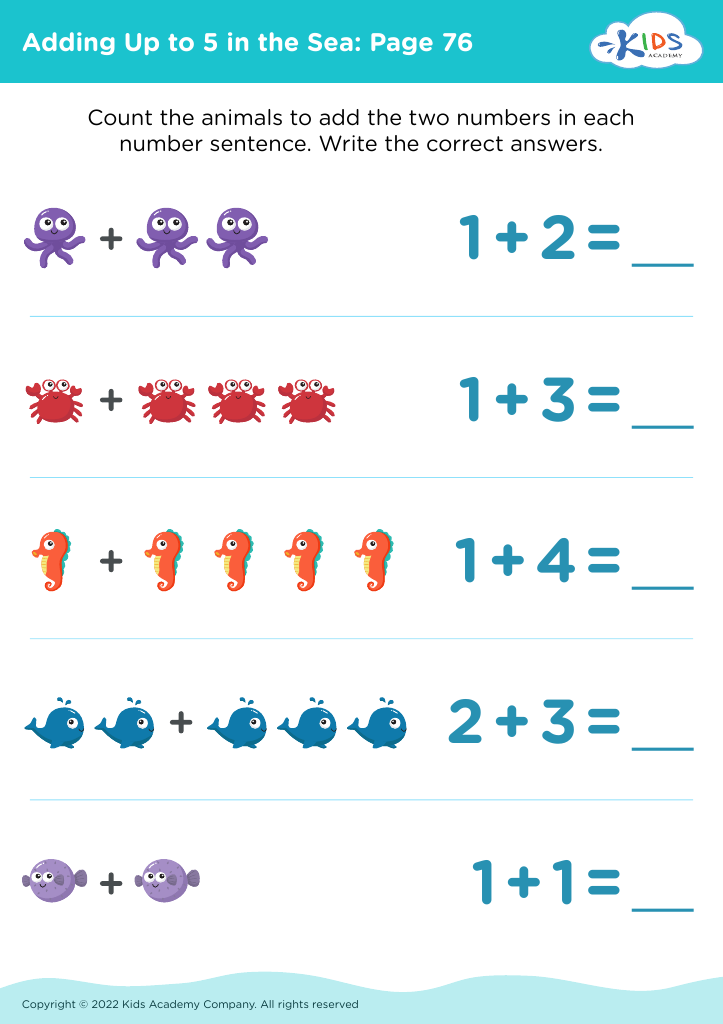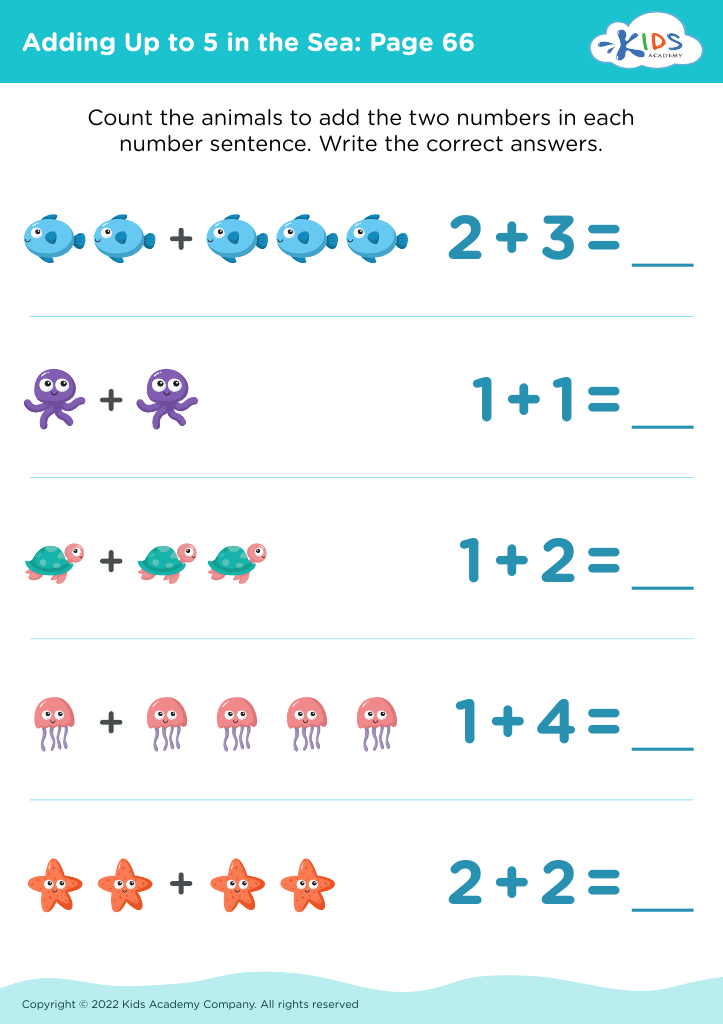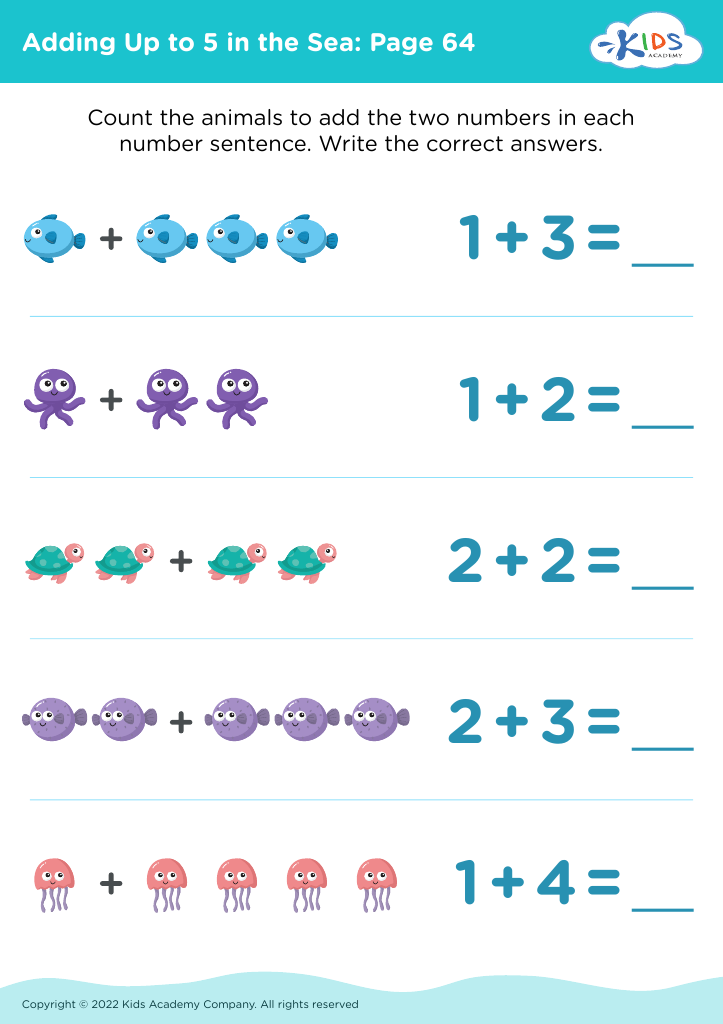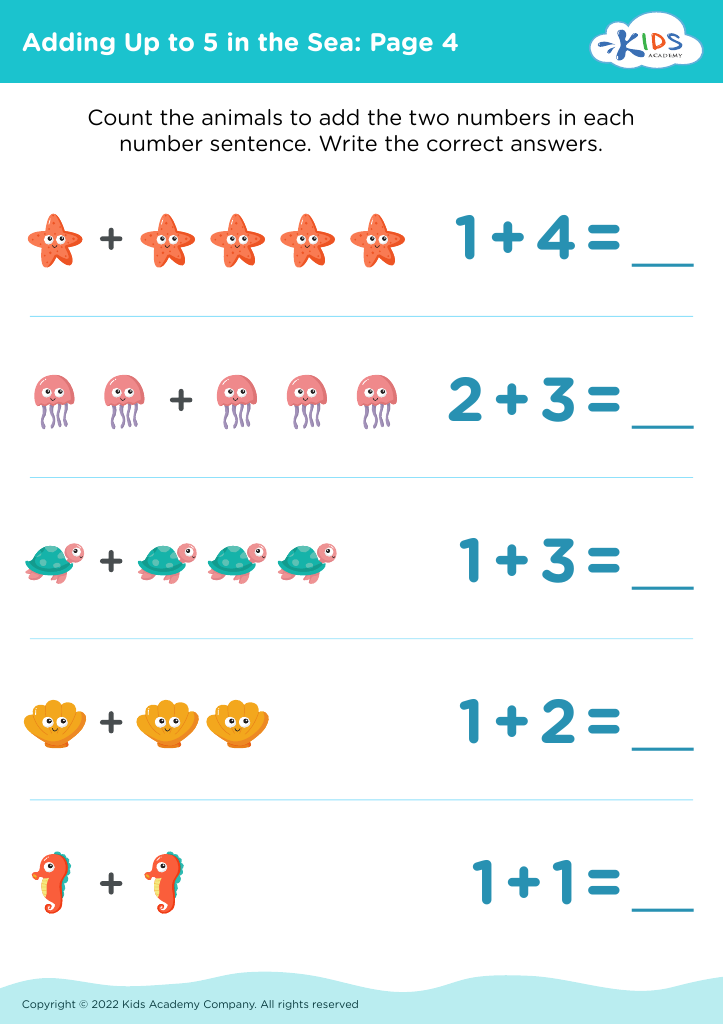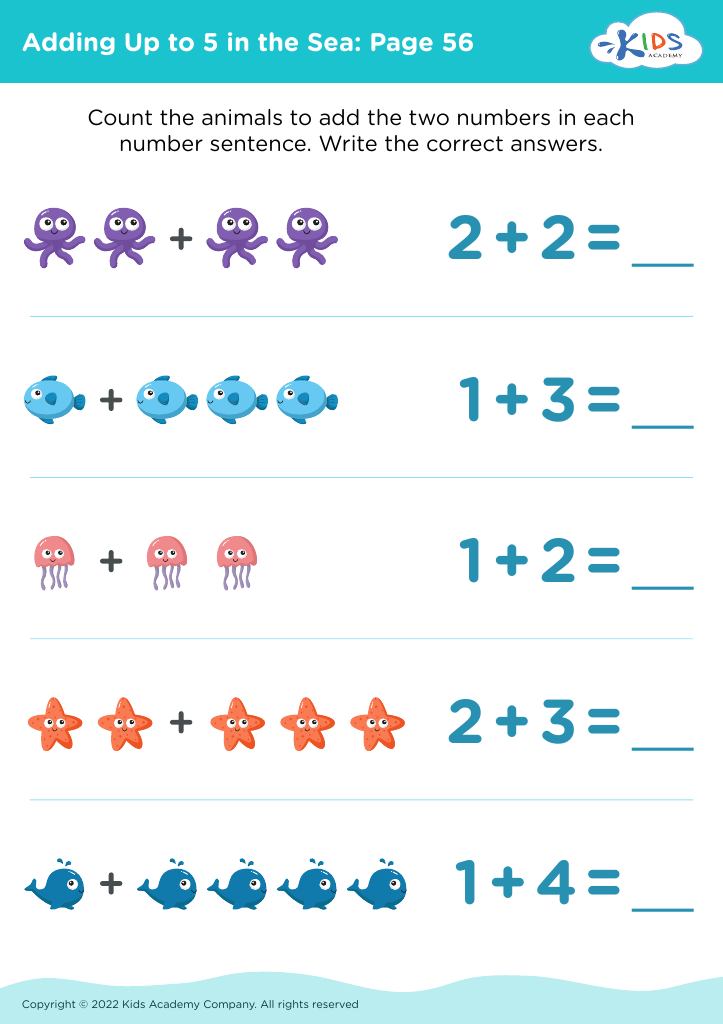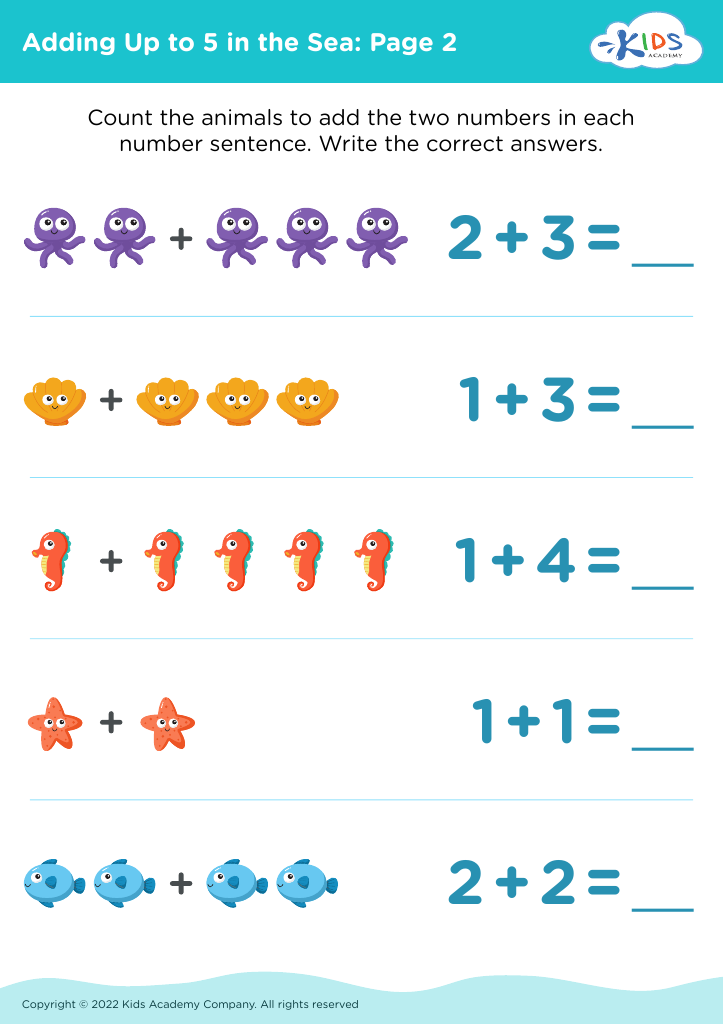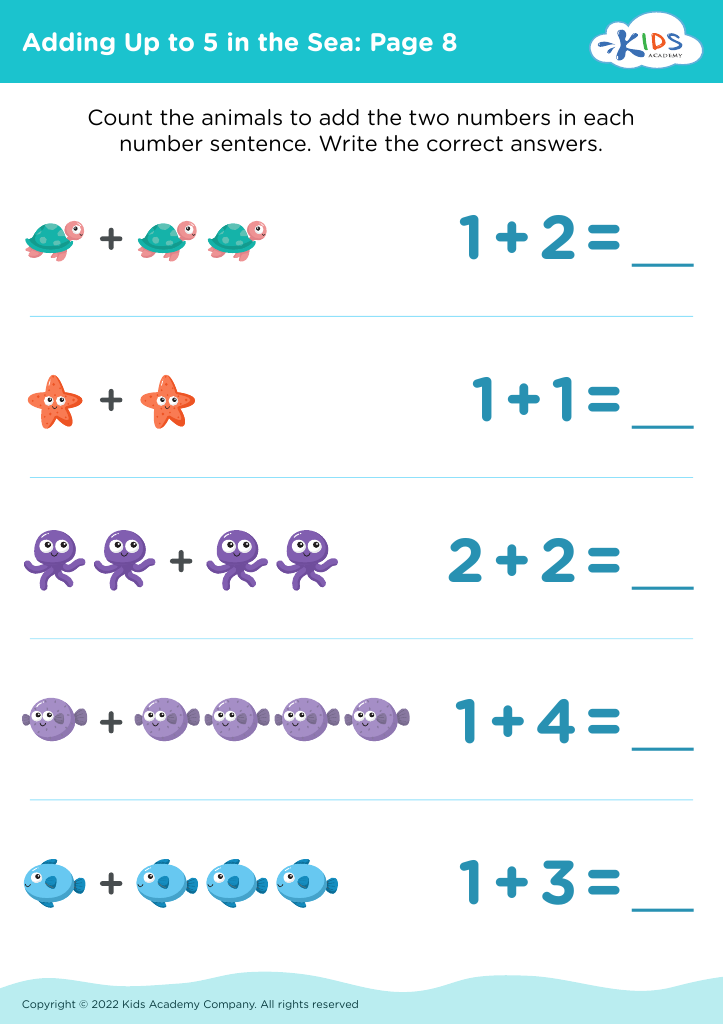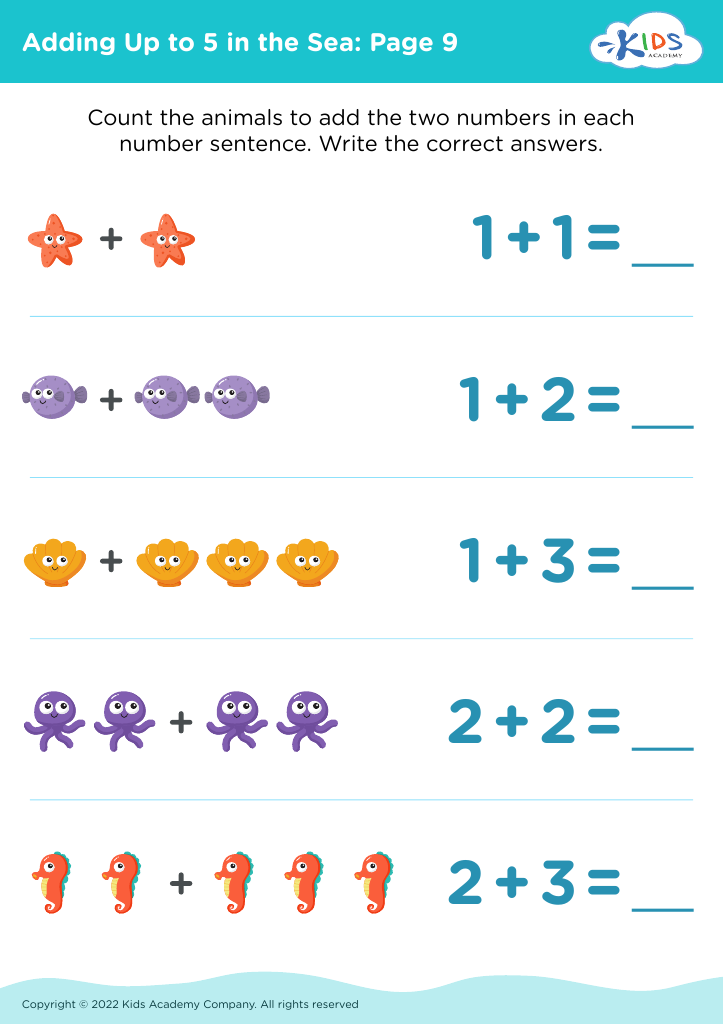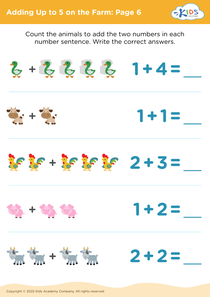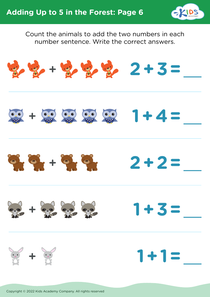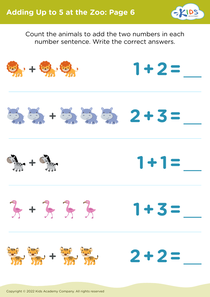Addition skills Adding in the Sea Worksheets for Ages 3-8
15 filtered results
-
From - To
Dive into math fun with our "Addition skills: Adding in the Sea" worksheets for ages 3-8! These engaging printable activities immerse young learners in an ocean-themed world where they can develop essential addition skills. Designed to make learning enjoyable and effective, these worksheets feature colorful sea creatures and interactive problems that encourage kids to practice addition in a playful environment. Ideal for preschoolers and early elementary school students, our worksheets support foundational math skills while sparking creativity and enthusiasm for learning. Perfect for both home and classroom use, let your child explore the wonders of math under the sea!
Addition skills serve as the foundation for a child's future math education and everyday problem-solving abilities. For children aged 3-8, integrating these skills through engaging activities like "Adding in the Sea" makes learning fun and impactful. This particular game can help students contextualize numbers in a captivating underwater world, making abstract concepts concrete and easy to understand.
Parents and teachers should prioritize addition skills because they help build one of the most crucial aspects of early cognitive development: numerical fluency. When children grasp addition early, they are better equipped to take on more complex math problems, enhancing their confidence and minimizing math anxiety as they grow.
Furthermore, games like "Adding in the Sea" often incorporate visual aids and interactive elements, which cater to diverse learning styles. This inclusive approach ensures that every child has the opportunity to excel. It encourages critical thinking, spatial reasoning, and logical planning, promoting a well-rounded intellectual growth.
Moreover, learning addition through playful means fosters a positive association with mathematics from a young age. This ensures sustained interest and proficiency in a subject critical for academic success and everyday life skills, like budgeting and time management. By investing in these foundational skills early, parents and teachers set children up for long-term success and a love for learning.
